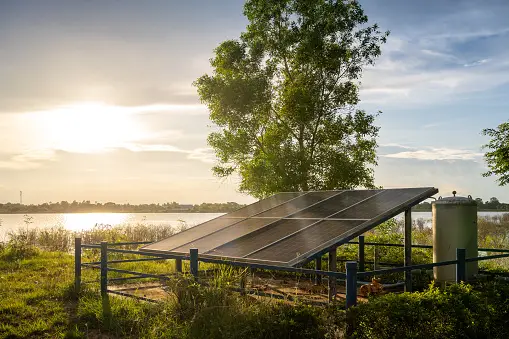
What is a Solar Pump?

What is a Solar Pump?
Struggling with high energy bills for water pumping? Diesel costs are unpredictable and constantly rising. A solar pump uses free energy from the sun to solve your water needs.
A solar pump is a water pump system powered by sunlight. It uses solar panels to convert sunlight into electricity, which then runs a highly efficient motor to pump water. This makes it an ideal, cost-effective solution for off-grid or remote locations.
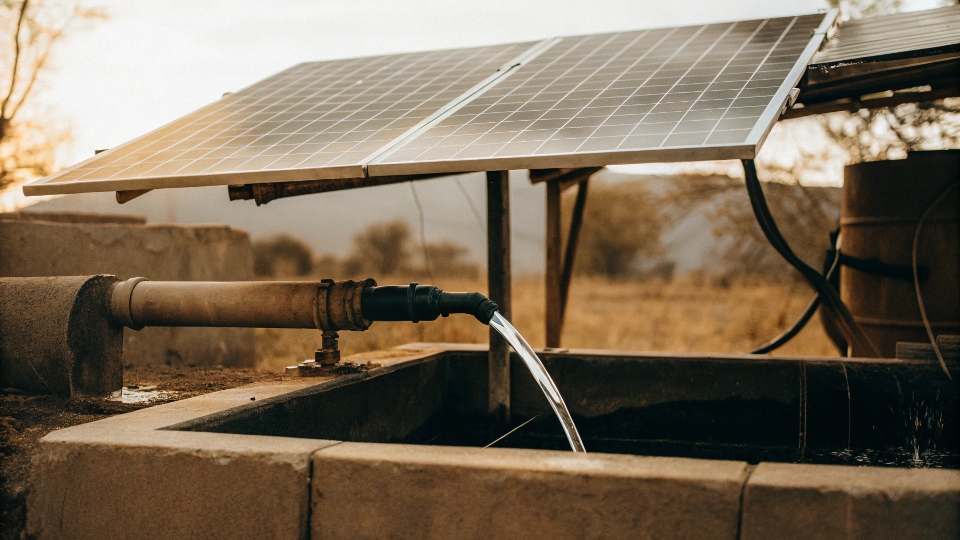
Now that we know the basics, you're probably wondering what these pumps actually do and how they can help you. I've worked with these systems for over ten years, and they are more versatile than you might think. From my factory in Taizhou, we've shipped pumps to over 150 countries, and I've seen firsthand how they change lives. Let's explore what a solar pump can do for you.
What does a solar pump do?
Can't get water where you need it most? Relying on manual labor or an inconsistent power grid is frustrating. Solar pumps reliably move water for farms, homes, and businesses.
A solar pump moves water from a source, like a well, lake, or river, to where it's needed. It's used for crop irrigation, livestock watering, providing community drinking water, and even circulating water in swimming pools, all using solar power.
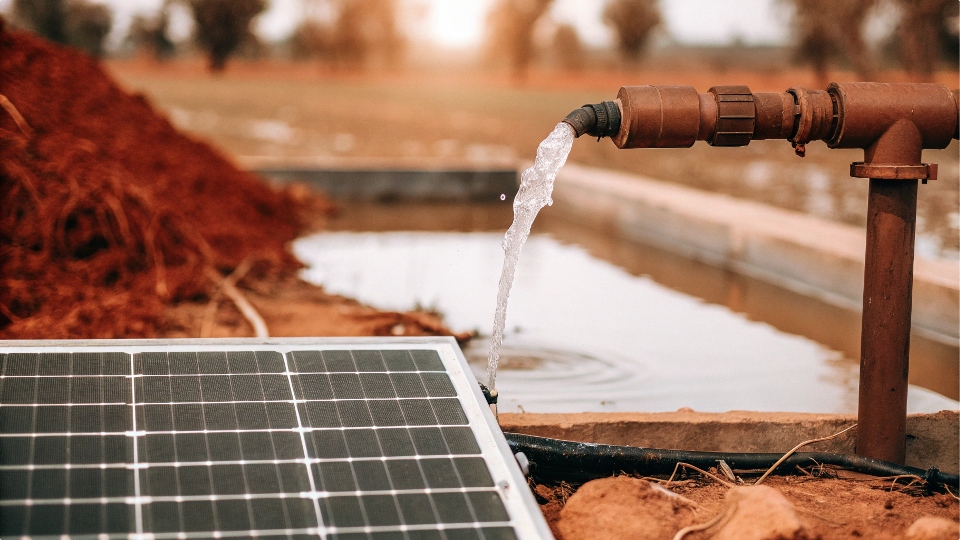
As an engineer, I see a solar pump as more than just a piece of equipment; it's a solution to fundamental problems. For over a decade, my work at Rafsun has focused on perfecting these solutions for different needs around the world. The core job of a solar pump is simple: move water. But how and where it does this is what makes it so powerful.
Agricultural Irrigation
I remember talking to an engineering peer, Jacky, who works with sugarcane factories in Thailand. He was struggling with the high and unpredictable cost of diesel for irrigation pumps. After we installed one of our, his irrigation became consistent and his operating costs dropped to nearly zero. This is a common story. Solar pumps provide the steady water supply that crops need to thrive, without the daily fuel cost.
Community Water Supply
In many remote areas, access to clean drinking water is a daily challenge. Solar pumps can draw water from deep wells and supply it to an entire village. Our are designed for exactly this. They provide a reliable source of water for drinking, cooking, and sanitation, powered only by the sun.
Other Applications
The use cases don't stop there. We manufacture solar pumps for swimming pools, which cut down on a home's electricity bill. We also build solar surface pumps that can transfer large volumes of water from rivers or ponds for livestock or other uses. The key is that they all run on clean, free energy.
What are the disadvantages of a solar water pump?
Worried about the high initial cost of a solar setup? It can seem like a big investment up front. But is the long-term cost really a disadvantage compared to traditional pumps?
The main disadvantage is the higher initial purchase price, mostly for the solar panels. Performance also depends on sunlight, so it pumps less water on cloudy days or at night unless you have a battery backup system.

Let's be direct about the downsides. No technology is perfect, and it's important to understand the challenges before you invest. From my experience, the two biggest concerns people have are cost and weather dependency. However, modern technology has solutions for both.
The Initial Investment
Yes, a solar pump system costs more upfront than a diesel or standard electric pump. You have to buy the pump, the controller, and the solar panels. A lot of people see that initial number and get worried. But I always tell them to look at the total cost over several years. I ran the numbers for a client recently on a 2.2kW system. Here is what we found:
| Cost Factor | Solar Pump System | Diesel Pump System |
|---|---|---|
| Initial Cost | Higher | Lower |
| Fuel Cost (Annual) | $0 | High and Variable |
| Maintenance | Very Low | Regular (oil, filters) |
| Payback Period | Under 3 Years | N/A (ongoing cost) |
The diesel pump seems cheaper at first, but you pay for it over and over again in fuel. The solar pump pays for itself, often in less than three years, and then the water is practically free.
Weather and Sunlight
The second concern is simple: what happens when the sun isn't shining? A solar pump's output is directly related to the amount of solar energy it receives. On a cloudy day, the flow rate will be lower. It won't work at night without batteries. But we design our systems for this. Our inverters use Maximum Power Point Tracking (MPPT) to get the most power possible, even in low light. We also help customers calculate their daily water needs, not hourly. This ensures the system is sized correctly to deliver enough water even with variations in weather.
Are solar pumps any good?
You have heard the pros and cons, but are they actually effective? It's easy to be skeptical of newer technology. Let my experience show you why they are a fantastic choice.
Yes, solar pumps are very good. They are reliable, have almost no running costs, and are environmentally friendly. With modern technology like permanent magnet motors, they are highly efficient and require very little maintenance, making them an excellent long-term investment.
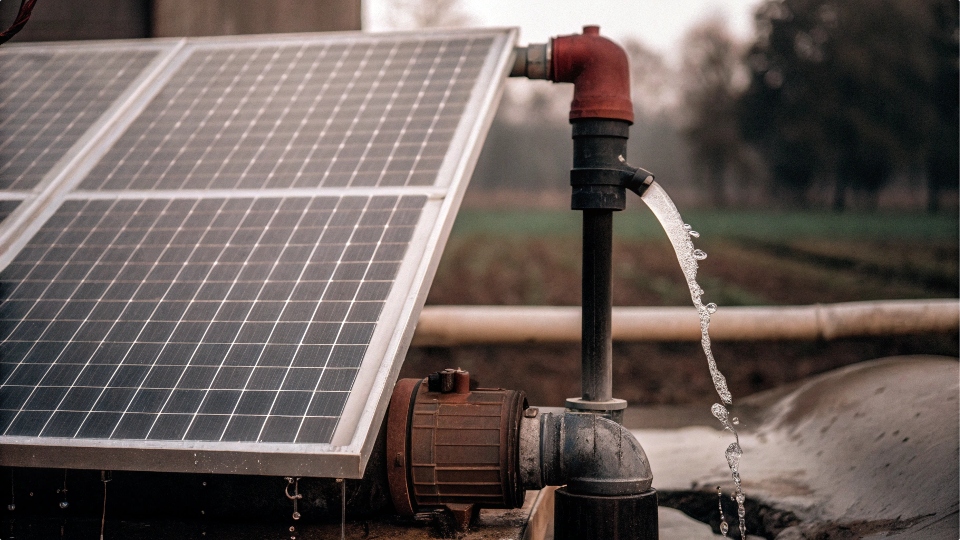
"Good" is an understatement. From an engineering standpoint, they are a superior technology for many applications. I've dedicated my career to this field because I believe in the technology. The reason they are so effective comes down to the motor and the smart controls we use.
The Power of the Motor
Most standard pumps use a traditional AC asynchronous motor. It's a proven but older technology. At my company, Rafsun, all our solar pumps use a Permanent Magnet Synchronous Motor (PMSM). This is a big deal. Think of it like comparing a standard car engine to a high-performance electric vehicle motor. The PMSM is much more efficient. It converts more of the sun's energy into pumping power, wasting very little as heat. This means you get more water for your money and a motor that lasts longer. Our focus on PMSM technology is backed by over 100 technical patents our R&D team has developed.
Smart, Efficient Control
Another key feature is the Variable Frequency Drive (VFD), which is built into our solar pump inverters. A traditional pump is like a light switch: it's either on full blast or off. A solar pump with VFD is like a dimmer switch. It intelligently adjusts the motor's speed based on how much sun is available. On a bright, sunny day, it runs at full speed. When a cloud passes over, it slows down instead of stopping. This smooth operation protects the motor from stress and maximizes your water output throughout the day. It contributes to an overall energy saving of about 30% compared to systems without it.
What is the difference between a solar pump and a normal pump?
A pump is a pump, right? It might seem like the only difference is the power source. But the core technology inside is what truly sets them apart for performance and longevity.
A solar pump uses a highly efficient DC motor, usually a permanent magnet synchronous motor, designed for variable solar power. A normal pump uses a less efficient AC asynchronous motor. Solar pumps also include a special inverter to manage solar energy.
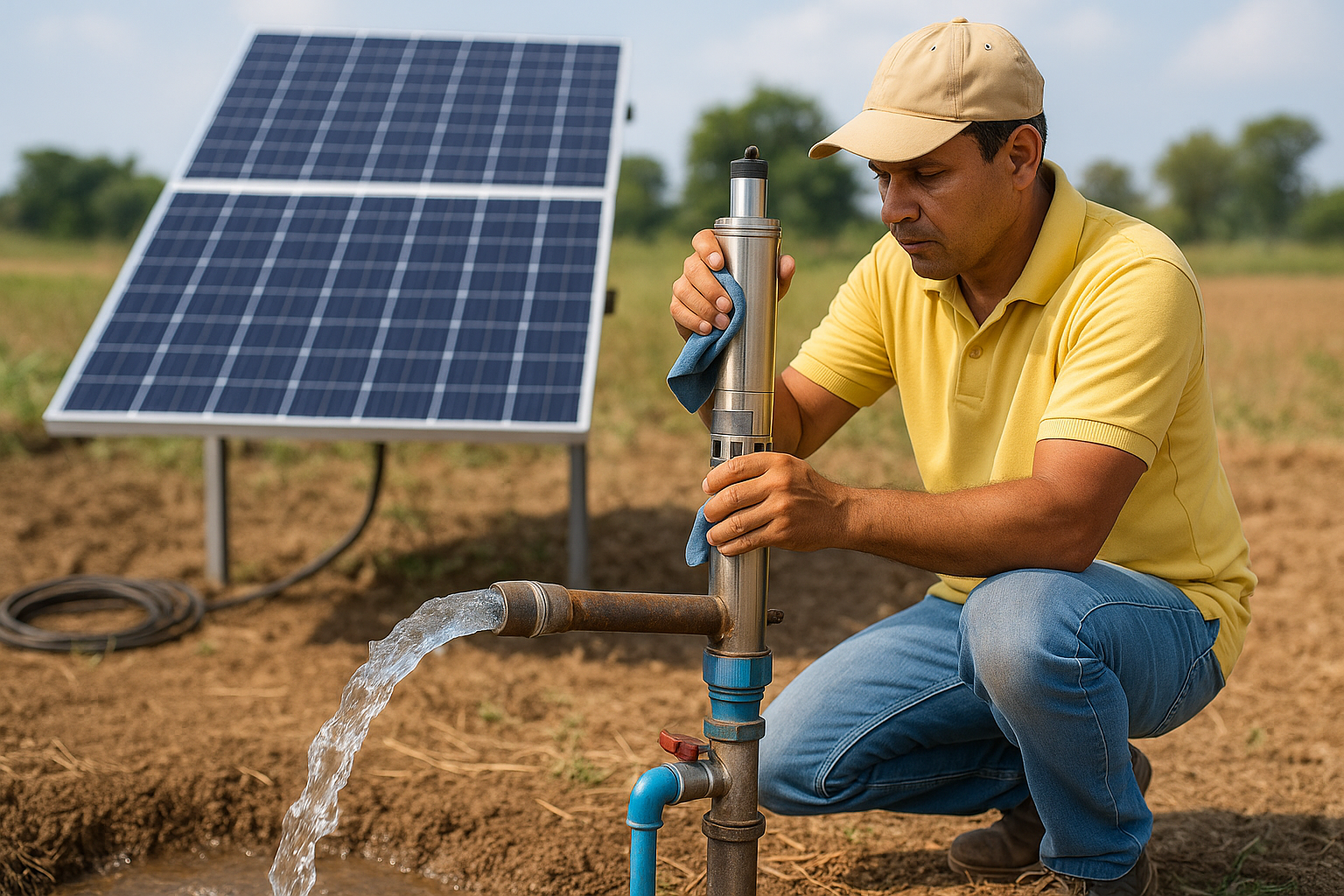
As an engineer who has worked on both types of pump designs, I can tell you the differences go far beyond just plugging into a wall or a solar panel. The entire system architecture is different, optimized for completely different goals. A normal pump is built for a world of constant, stable power from the grid. A solar pump is engineered for the variable, direct current produced by the sun.
Here is a breakdown of the key differences:
| Feature | Solar Pump (Our Design) | Normal Pump (Traditional) |
|---|---|---|
| Power Source | Solar Panels (DC) | AC Grid or Diesel Generator |
| Motor Type | Permanent Magnet Synchronous Motor (PMSM) | Asynchronous Motor |
| Efficiency | Very High (up to 30% more efficient) | Standard |
| Control System | Smart Inverter with MPPT and VFD | Simple On/Off Starter |
| Running Costs | Nearly zero | High (electricity or fuel) |
| Maintenance | Minimal | More frequent (fuel, oil, brushes) |
| Environmental Impact | Clean, renewable energy | Uses fossil fuels, creates emissions |
The most critical difference is the combination of the PMSM motor and the VFD inverter. This pairing is the heart of a modern solar pump. A normal pump running on a generator is incredibly inefficient by comparison. It runs at one speed, wasting fuel and causing a lot of wear on the motor. Our solar pumps intelligently adapt to the power source, ensuring a long life and maximum water output for every bit of sunshine.
Conclusion
Solar pumps are an efficient and reliable solution for water management. They offer long-term savings and energy independence, making them a very smart investment for your future.

[email protected]
Rafsun Solar Water Pump Expert

[email protected]
Rafsun Solar Water Pump Expert
Solar water pump specialist with over 10 years of experience at Rafsun Technology. Passionate about renewable energy solutions and sustainable water management systems.
Latest from Rafsun
-
-
5 Benefits of MPPT Technology in Solar Pump Systems
May 28, 2023
-
Maintenance Tips for Long-lasting Solar Water Pumps
April 15, 2023



